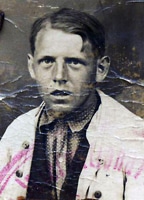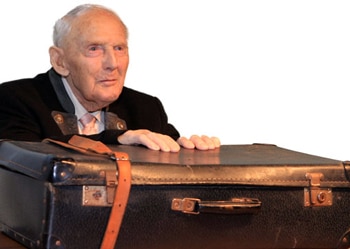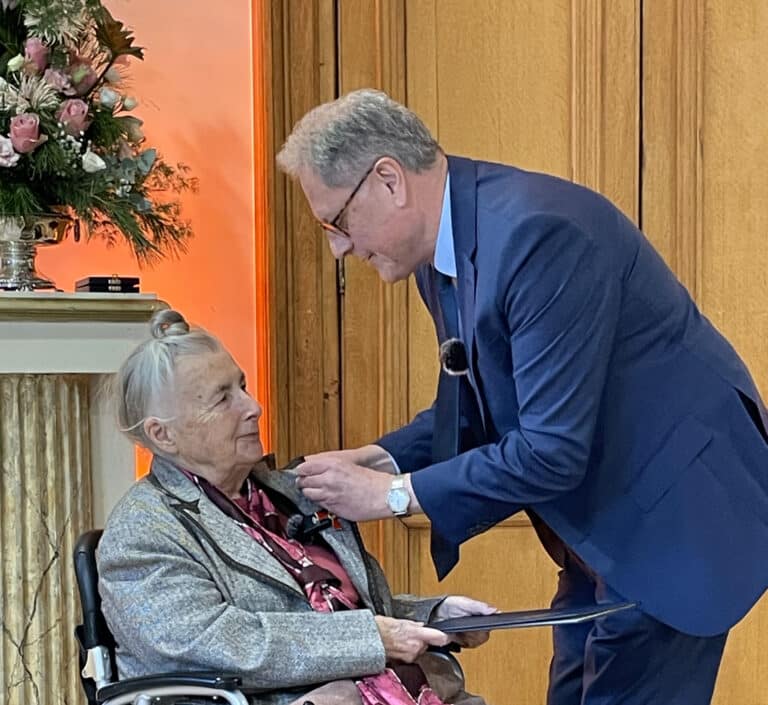QUESTION :
WHY DIDN’T YOU JUST SIGN THE PAPER AND GO BEHIND THEIR BACKS TO PRACTICE YOUR RELIGION? IF YOU HAD SIGNED THE DECLARATION, YOU WOULD HAVE BEEN FREE AND LIVED WITHOUT A LIFE OF TERROR?

That is an interesting question and I thank you for bringing up this point.
First of all, you have to know what signing the declaration would have really meant. It would have been a complete denial of my faith. I would have acknowledged that I was no longer one of Jehovah’s Witnesses from that moment on.
I was convinced that the Nazis were wrong and that peace was only possible by living in agreement with Bible principles. I was determined not to ever give up. I would have sooner died than give up my conviction. I was proud of my faith in the Almighty God, whose name is Jehovah according to the Bible, and did not want to hide this. I was determined that Jehovah God could help me to endure everything if I kept my loyalty.
Moreover, if you read the declaration carefully you will see that signing it would have meant complete enslavement under Hitler, and I would have agreed with Hitler’s ideology.
And what would have awaited me after my release? I would have received the call-up paper in the German Wehrmacht and I would have faced a new problem, because I refused to go to war.
I also did not look to other people for guidance and followed my own path, alone if need be. No matter what others did, I was determined not to budge an inch from my position. Besides, if I would have signed it would have been a major triumph for the SS and strengthened their belief that further pressure would bring more Jehovah’s Witnesses to their knees.
It might interest you that signing this declaration and being released was offered to me many times by the SS. I would like to relate one situation:
One day an SS man said to me: “There are only two ways that you will ever go home: either you sign, or you go through the chimney.” By this he meant that I only had one possibility to leave the concentration camp alive: I would have to abandon my faith and sign the declaration. If I refused, I would certainly die and “escape” through the chimney as smoke following my cremation.
But I was determined that I would leave the concentration camp alive and without having made any compromises. So I retorted, “I will not sign, and I will not go through the chimney either. I will go home!”
The SS man shook his head, saying, “You are such fanatics. You really believe you’ll be going home again one day. But you have no other choice but to sign.”
I, however, disagreed, and to prove how convinced I was that I would come home I did the following:
When prisoners died, the camp commandant would send their effects back to their last known address. If no address was known, their belongings were sold off to the other inmates. In one such sale, I bought an old tattered suitcase. Despite the daily terror, despite the constant danger that each day could be my last, my faith in Jehovah God caused me to think of life after internment and to be ready for my journey home.

May I conclude my statement with a personal request to all of you?
I would be delighted if my answer and my life story encouraged every one of you to stay close to righteous principles in your life. Tolerance, humanity and peace are among the highest ideals and I ask you to keep this in your mind your whole life. I am convinced that our Almighty God will give you the power to live your life according his principles.
My personal experience during the last 104 years has left me absolutely convinced that the Bible is still the best guide for a happy and full life. It can help everyone to solve the problems she or he is confronted with, whatever their nature. Keep your common sense, your heart and your conscience intact—for your own good and for the good of the people around you.
If you would like to know more about my life story, please visit my web site: www.unbrokenwill.com.



